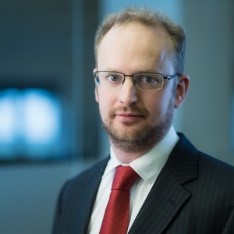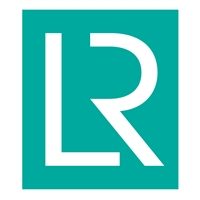2 – 5 December 2025
Shanghai New International Expo Centre (SNIEC), China
中国上海浦东新区龙阳路2345号, 上海新国际博览中心
2 – 5 December 2025
Shanghai New International Expo Centre (SNIEC), China
中国上海浦东新区龙阳路2345号, 上海新国际博览中心

Mr James Frew
Business Consultancy Director
Lloyds Register

Moderator: Mr. Michael Duck, Executive Vice President – Commercial Development of Informa Markets
Interviewee: Mr James Frew, Business Consultancy Director of Lloyds Register
Duck:
Frew:
Good day to everybody. I’m Michael Duck from Marintec China and Informa Markets, I am here to interview James Frew, the Business Consultancy Director for Lloyds Register, the leading provider of classification and compliance services to the marine and offshore industries. Good morning to James good to have you on board.
Good afternoon, Michael. Great to speak to you today.
Duck:
Thank you very much. In a few sentences, would you like to introduce yourself, your background and the company, please.
Frew:
Of course, delighted to. My name is James Frew, as you mentioned, I am Business Consultancy Director for Lloyds Register. The Business Consultancy Team within LR is now 30 people nearly and it is response to the challenges that LR sees the industry facing.
I think everyone knows that LR has been on something of a journey in terms of enhancing our investment in the maritime industries, that’s because we see that the challenges of digitalisation and decarbonisation as being really transformative for the industry.
Duck:
Let’s go on to sort of, talk about some of those fuels and the innovation within Lloyds Register, how do you evaluate the new greenhouse gas emissions? Reduction strategy and what are the alternatives we hear of hydrogen and green hydrogen green methane even LNG ammonia biomineral, there I said, nuclear and electrification. So this seems to be a big basket that’s coming out of the position.
Frew:
Yes, absolutely, And I think that LR firmly believes in a multi fuel future. So, you know, it will be, there are certain fuels or certain solutions I should say that are going to be very appropriate for certain ship types. You’re even looking at things like electrification and batteries for sort of short-sea or ferries looks very interesting. Large vessels, some will burn methanol, some will burn ammonia, some will burn LNG and I think we’re doing seeing some quite interesting developments happening around sort of biogas as well as of course. LR sorts of storage work to try and address the issues of methane slip through the MAMI, coalition. So I’d say, yes, we do see quite a lot of work going in there, I think the point you made was precisely right that looking at the lifecycle impact of fuels is important, and you know not just taking into account say the tanked way can be tanked away commissions. For all emissions, I think it’s going to be quite key to what we’re, what we’re seeing.
LR is doing a lot of work around that lifecycle emissions both in terms of verification and certification. But also looking at how you can reduce those lifecycle missions across the different across the different field types. So yeah, there’s a lot of work going on. But, but in terms of sort of the fuel selection piece, we’re definitely looking into multi fuel future and I think LR is just working with clients to select the light fuels. We’re doing a recent project with, a leading ship owner looking to design the, MR tanker of the future. And you know it’s about on a map that ships trading patterns, its operational profile and selecting the correct fuel and the optimal fuel for that vessel.
Duck:
What are we expecting to see from Lloyds Register in terms of what you want to bring to China and what you’re looking for at the exhibition, from the market there.
Frew:
Good. So what we’re trying to do, I think, is, talk about the new potential, designs of vessels. I think, you know, we’ve seen a lot of folks around, new gas carriers to serve the new trades. LR’s obviously got significant exposure, in ammonia. So, I think we certainly see that as being important as well as I say a real focus on decarbonisation and supporting the industry on its decarbonisation journey, whether that’s around lifecycle emissions, of building a ship, obviously within Marintec, it with us and the emissions of equipment, whether it’s about mitigating. Some of the difficult sort of challenges that like methane slip. That’s really a big part of our focus as well as of course, digitalisation, as an enabler to efficient performance and indeed reduced.
Reduced emissions impact as well.
Duck:
Is there anything you’d like to add?
Frew:
I think mainly LR’s delighted to be at Martintec. It’s obviously a fantastic event and I think it also showcases the really important role that Chinese shipbuilding can perform and does perform in terms of serving global trade more generally. And indeed helping the industry to decarbonise. So yeah, it’ll be fantastic to reconnect with some old friends to meet new contacts and discuss how we can how we can support the industry in terms of the challenges that you’ve done by about digitalisation and decarbonisation.
Duck:
Thank you very much for everyone there. James, it’s great to see you. Great to hear you and thanks for your time today and I look forward to seeing you in Shanghai very soon.
Frew:
Great. Thanks a lot. Lovely to meet you, Michael.